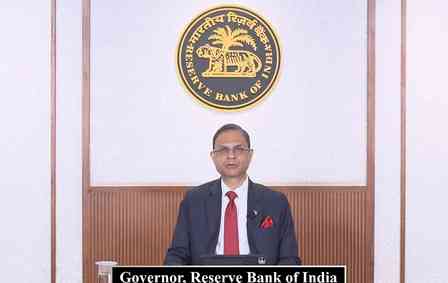ASSOCHAM–Odisha State Development Council and Primus Partners Launch Landmark Report on AI-Driven Manufacturing at Odisha Manufacturing Conclave 2025
The ASSOCHAM–Odisha State Development Council, in collaboration with strategy consulting firm Primus Partners, released a pioneering report titled “AI-Driven Manufacturing: Innovation, Efficiency & Sustainable Growth” at the Odisha Manufacturing Conclave 2025.

Bengaluru, June 18, 2025: The ASSOCHAM–Odisha State Development Council, in collaboration with strategy consulting firm Primus Partners, released a pioneering report titled “AI-Driven Manufacturing: Innovation, Efficiency & Sustainable Growth” at the Odisha Manufacturing Conclave 2025.
The report provides an all-inclusive analysis of how Artificial Intelligence (AI) is transforming the manufacturing sector globally and in India, enhancing productivity, operational efficiency, sustainability, and resilience across key industries such as steel, mining, green energy, logistics, and infrastructure.
Key Highlights of the Report:
● Sectoral transformation: Real-world case studies from Odisha and beyond on how AI is driving predictive maintenance, quality control, smart logistics, and intelligent automation.
● Odisha at the forefront: The state’s AI-first approach, including the Odisha AI Policy 2025 and the Odisha AI Mission, positions it as a national model for AI integration across core industrial sectors.
● Global competitiveness through ESG: AI’s role in enabling responsible manufacturing—reducing emissions, optimizing energy use, and ensuring regulatory compliance.
● Public-private partnerships: A call to strengthen collaboration between government, industry, academia, and startups to foster scalable and ethical AI deployment.
● Future-ready workforce: Strategic emphasis on AI-integrated skilling and capacity building, particularly in MSME clusters and technical institutions.
The Odisha Manufacturing Conclave 2025 served as the official launch platform for the report, bringing together senior government officials, industry leaders, policy experts, innovators, and academic institutions. The event facilitated high-level dialogue on India’s readiness to embrace AI-led industrial transformation, with Odisha showcased as a key accelerator in driving intelligent, inclusive, and sustainable manufacturing.
AI is not just optimizing manufacturing—it’s redefining it. Globally, AI-driven factories have achieved up to 40% productivity gains and 90% defect detection accuracy. As India embraces Industry 4.0, Odisha stands uniquely positioned with 41.2 MTPA steel capacity, 55% of India’s iron ore output, and a robust digital ecosystem. This report outlines how Odisha can lead India’s AI-led industrial leap, balancing innovation with sustainability and making ‘Made in India’ globally competitive and future-ready,” said Mr. Pankaj Lochan Mohanty, Chairman, Odisha State Development Council, ASSOCHAM.
“Artificial Intelligence is rapidly reshaping global manufacturing, with over 80% of manufacturers already adopting AI across operations. Studies show AI can reduce defects by 66%, cut material costs by 12.5%, and speed up production cycles by 20%. Odisha, with its proactive AI policy and sectoral pilots, is leading from the front. The state’s industrial base, combined with digital readiness, presents a compelling opportunity to create globally competitive, ESG-aligned manufacturing hubs. This report offers a practical roadmap to harness AI for economic growth, sustainability, and resilience—especially for MSMEs, which stand to gain the most from targeted skilling, infrastructure support, and innovation partnerships,” added Mr. Kanishk Maheshwari, Co-Founder and Managing Director, Primus Partners.
As India charts its course through the Fourth Industrial Revolution, Odisha’s proactive policies, sectoral strengths, and digital ambition position it as a frontrunner in shaping the future of smart manufacturing. The insights and recommendations in the report aim to guide stakeholders across the ecosystem in building a resilient, tech-enabled, and globally competitive manufacturing landscape.



 City Air News
City Air News 










